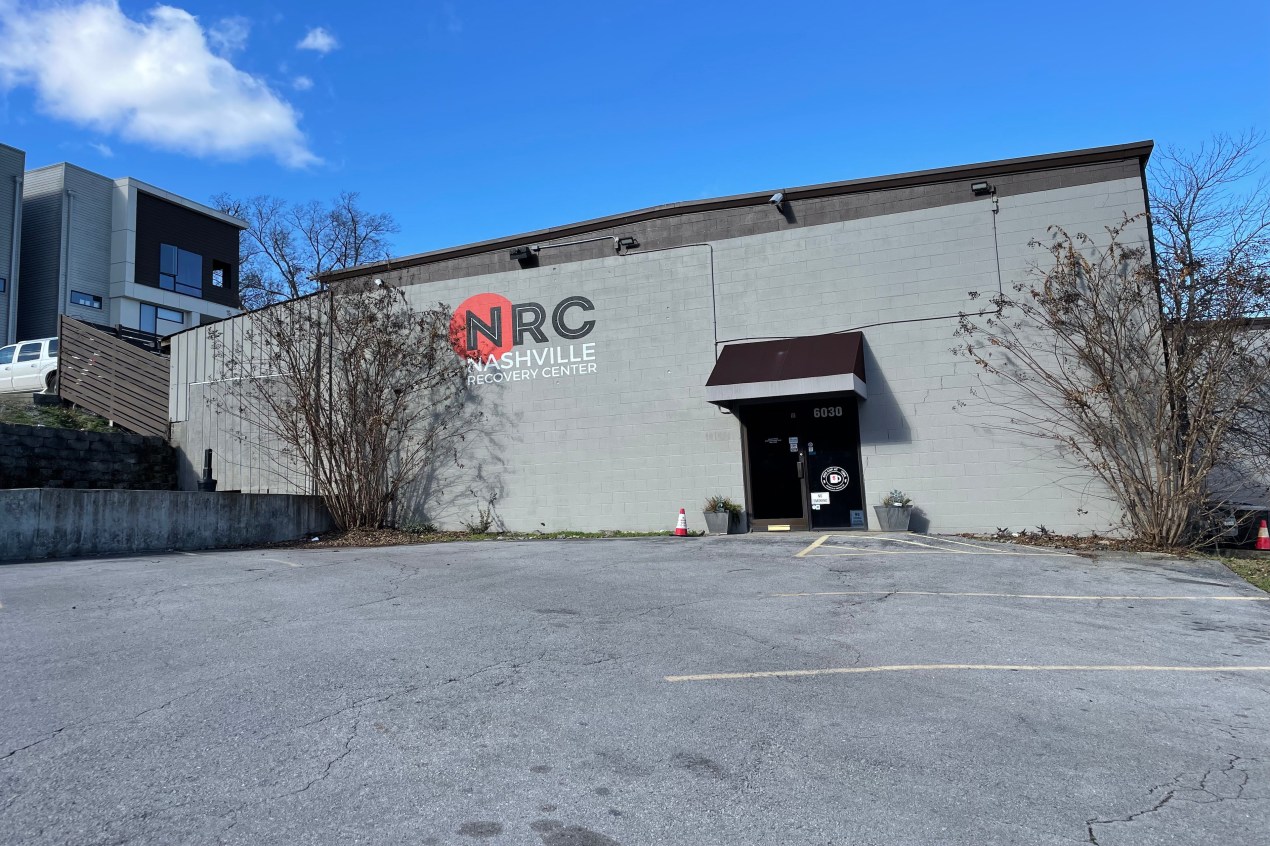Discover Effective Treatments at a Recognized Addiction Treatment Center
Discover Effective Treatments at a Recognized Addiction Treatment Center
Blog Article
Browsing the Trip of Detoxing in the Comprehensive Dependency Treatment Program
The process of cleansing holds a significant duty in damaging the physical dependancy on compounds and preparing the person for the subsequent stages of therapy. As individuals grapple with the obstacles of withdrawal signs and symptoms and the uncertainties that exist ahead, having an organized strategy and a robust support system in area comes to be critical.
Relevance of Detoxing in Recuperation

Detoxing sets the foundation for the remainder of the addiction treatment program by preparing the individual for additional therapy and counseling. By cleansing the body of substances that have actually been clouding judgment and influencing actions, detox makes it possible for individuals to approach their healing with a clearer mind and stronger emphasis.
Additionally, cleansing aids in handling the potentially severe withdrawal signs and symptoms that might develop when medication or alcohol use is stopped. Physician closely check clients during detox to ensure their security and give essential assistance. With this process, individuals can begin their journey towards sobriety with a supported physical and psychological state, raising the likelihood of an effective recovery.
Understanding the Detoxification Refine
Detoxing, a basic component of dependency therapy programs, entails a structured process focused on securely removing hazardous materials from the body to facilitate an effective healing trip. The detoxification process generally begins with an examination to assess the person's compound usage history, physical health and wellness, and psychological well-being. This evaluation assists medical care professionals establish the most appropriate detox plan tailored to the individual's needs.
Throughout detox, the body undergoes withdrawal as it readjusts to the absence of the material. Withdrawal signs and symptoms vary relying on the kind of substance used, the period of usage, and specific aspects. Clinical guidance throughout detoxification is critical to handle withdrawal symptoms and make certain the person's safety and convenience.

Managing Withdrawal Signs And Symptoms

Medicines might be made use of to minimize details withdrawal signs and symptoms and minimize discomfort. For instance, medications like methadone or buprenorphine can help manage opioid withdrawal signs and symptoms, while benzodiazepines might be utilized for alcohol withdrawal. It is crucial for doctor to carefully keep an eye on the individual's response to these medications to guarantee their security and effectiveness.
In addition to pharmacological treatments, encouraging therapies such as counseling, peer assistance teams, and all natural techniques like mindfulness meditation or yoga exercise can help individuals cope with the psychological and mental obstacles of withdrawal. By addressing withdrawal symptoms thoroughly, health care providers can boost the detoxification experience and assistance people on their trip to recuperation.

Support Equipments During Detoxification
Assistance systems play a vital function in providing social and psychological support to people going through cleansing in dependency therapy programs. During the detox process, people commonly experience a variety of emotional and physical withdrawal symptoms, making this phase tough - Addiction Treatment Center. Having a strong support system in position can significantly influence the person's ability to navigate with detox efficiently
Household participants, good friends, assistance groups, and healthcare specialists are important elements of the support system. Family members members and friends can supply inspiration, understanding, and a feeling of belonging throughout this difficult time. Support teams give browse around these guys a platform for individuals to connect with others who are undergoing comparable experiences, providing a sense of area and shared understanding. Health care specialists, consisting of medical professionals, therapists, and therapists, play a vital role in monitoring the person's progress, supplying medical assistance, and offering support throughout the detoxification process.
Looking Ahead: Life After Detox
Having actually efficiently finished the detoxing phase, people in addiction treatment programs currently concentrate on preparing for the challenges and chances that exist in advance in their trip towards recovery. Life after detoxification notes an essential shift duration where people must continue to improve the progress made throughout detoxification to keep their soberness. It is crucial for people to acknowledge that the trip in read the article the direction of healing is continuous and requires dedication, dedication, and a desire to welcome modification.
One secret facet of life after detoxification is the growth of dealing systems to handle triggers and cravings that might occur. This may involve finding out brand-new abilities, such as mindfulness methods, cognitive-behavioral strategies, and stress and anxiety management methods, to browse tough circumstances without resorting to compound usage. Furthermore, individuals are urged to actively participate in recurring therapy, support system, and aftercare programs to reinforce their support network and obtain guidance as they navigate the intricacies of life post-detox.
Conclusion
Finally, cleansing is a vital part of the extensive dependency therapy program. Comprehending the detox process and managing withdrawal signs are important steps towards recovery. Support systems play a considerable duty during this challenging journey. Addiction Treatment Center. Looking in advance, life after detoxification holds assurance for a much healthier, substance-free future. It is crucial to identify the significance of detox in the procedure of overcoming addiction and relocating in the direction of a life of soberness.
Clinical supervision throughout detox is important to take care of withdrawal signs and make sure the individual's safety and comfort.
By comprehending the detox procedure and its relevance in breaking the cycle of addiction, people can begin on a course towards lasting healing.
Throughout the detox procedure, individuals frequently experience an array of mental and physical withdrawal signs and symptoms, making this stage challenging. Healthcare specialists, including doctors, counselors, and therapists, play a critical role in monitoring the individual's development, giving medical support, and using support throughout the detoxification process.
Life after detoxification marks a critical change period where individuals should proceed to build on the progress made throughout detoxification to preserve their soberness.
Report this page